TRUTH BOMB
Most people are unaware that amendments to the International Health Regulations WERE ADOPTED on May 27, 2022. No Presidential signature? No advice and consent from the Senate? Why the silence?
Please watch the video below…
This is NOT just about the proposed “Pandemic Treaty.”
This IS ALSO about the proposed amendments to the International Health Regulations.
THIS IS MOSTLY ABOUT THE PROPOSED AMENDMENTS TO THE INTERNATIONAL HEALTH REGULATIONS THAT WERE ADOPTED BY THE 75TH WORLD HEALTH ASSEMBLY ON MAY 27, 2022.
An Open Letter to Richard C. Visek, the Acting Legal Adviser to the Secretary of State
The Office of the Legal Adviser to the Secretary of State is responsible for the oversight of the negotiations of international agreements and treaties.
The Office of the Legal Adviser furnishes advice on all legal issues, domestic and international, arising in the course of the [State] Department's work. This includes assisting [State] Department principals and policy officers in formulating and implementing the foreign policies of the United States, and promoting the development of international law and its institutions as a fundamental element of those policies.
Dear Acting Legal Adviser Richard C. Visek:
I have a number of questions for you in regards to the amendments to the International Health Regulations that were adopted by the 75th World Health Assembly on May 27, 2022: https://apps.who.int/gb/ebwha/pdf_files/WHA75/A75_ACONF7Rev1-en.pdf
I also have a number of questions regarding the proposed amendments to the International Health Regulations that have been submitted by the United States as well as the proposed amendments to the International Health Regulations that were submitted by a total of 94 member nations and are currently being negotiated by the Working Group on amendments to the International Health Regulations (WGIHR). https://apps.who.int/gb/wgihr/index.html
I specifically would like to bring your attention to the following:
(d) Extensions and modifications of agreements. If an undertaking constitutes an international agreement within the meaning of the Act and of 1 U.S.C. 112a, then a subsequent extension or modification of such an agreement would itself constitute an international agreement within the meaning of the Act and of 1 U.S.C. 112a.
https://www.ecfr.gov/current/title-22/chapter-I/subchapter-S/part-181/section-181.2#p-181.2(a)
YOUR PROMPT AND PUBLIC REPLY TO ALL OF THE FOLLOWING QUESTIONS REGARDING THE PROPOSED AMENDMENTS TO THE INTERNATIONAL HEALTH REGULATIONS IS HEREBY REQUESTED.
QUESTION 1:
1. The final negotiations regarding the amendments in question were conducted just hours prior to their adoption by the World Health Assembly on May 27, 2022. In the video below, United States Delegate Colin McIff clearly states that the “informal” negotiations had just concluded, and then the amendments were adopted by consensus (silence procedure).
Was the Secretary of State properly consulted regarding the final version of the amendments prior to their adoption, as required by law?
youtube.com/watch?v=M393lvg1650&t=466s
(a) The Secretary of State is responsible, on behalf of the President, for ensuring that all proposed international agreements of the United States are fully consistent with United States foreign policy objectives. Except as provided in § 181.3(c) of this part, no agency of the U.S. Government may conclude an international agreement, whether entered into in the name of the U.S. Government or in the name of the agency, without prior consultation with the Secretary of State or his designee.
https://www.ecfr.gov/current/title-22/chapter-I/subchapter-S/part-181/section-181.4#p-181.4(a)
11 FAM 725.1 Conduct of Negotiations
(7) In no case, after accord has been reached on the substance and wording of the texts to be signed, do the negotiators sign an agreement or exchange notes constituting an agreement until a request under 11 FAM 724.3 for authorization to conclude has been approved and, if at a post abroad, until instructed by the Department to do so as stated in 11 FAM 731.3.
QUESTION 2:
2. Were you consulted by United States delegate Colin McIff regarding the proposed amendments before they were adopted via the silence procedure on May 27, 2022?
These amendments were submitted in clear violation of the World Health Organizations own rules which require at least 4 months advance notice of any proposed amendments. The amendments that were adopted on Friday, May 27, 2022 were first submitted to the WHO on Monday, May 24, 2022. https://apps.who.int/gb/ebwha/pdf_files/WHA75/A75_ACONF7-en.pdf
Agencies whose responsibilities include the negotiation and conclusion of international agreements are responsible for transmitting to the Assistant Legal Adviser for Treaty Affairs, for decision pursuant to paragraph (a) of this section, the texts of any document or set of documents that might constitute an international agreement. The transmittal shall be made prior to or simultaneously with the request for consultations with the Secretary of State required by subsection (c) of the Act and § 181.4 of this part.
https://www.ecfr.gov/current/title-22/chapter-I/subchapter-S/part-181#p-181.3(b)
713.2 Legal Clearance Required
Any draft of a proposed treaty or agreement, or any action regarding the negotiation, conclusion, ratification or approval, or termination, as well as the existence, status, and application, of any international agreement to which the United States is or may become a party, should be cleared with the Office of the Legal Adviser (including the Assistant Legal Adviser for Treaty Affairs (L/T) as appropriate) and with other appropriate bureaus or offices and, as appropriate, with any other agency concerned with the treaty or international agreement.
QUESTION 3:
3. Who, if anyone, was/is officially authorized by the State Department to draft, submit and negotiate the proposed amendments to the International Health Regulations?
This applies both to the negotiations that are ongoing right now as well as the discussions and negotiations that occurred in 2020, 2021 and 2022.
QUESTION 4:
4. Who (if anyone) submitted a request for Circular 175 authority to negotiate or conclude such an agreement?
Detailed requirements for submitting requests for Circular 175 authority to negotiate or conclude an agreement may be found at 11 FAM 720. Among other things, an agency wishing to negotiate or conclude an international agreement must transmit to the appropriate point of contact in the Office of the Legal Adviser relevant information about the proposed agreement including: a draft text or summary of the proposed agreement; a precise citation of the constitutional, statutory, or treaty authority for such agreement; and other background information as requested by the Department of State.
QUESTION 5:
5. Please provide any and all official Delegation of Authority Letters that may have delegated the authority to negotiate these amendments.
Mara Burr
Mara M Burr spoke for the United States during the second meeting of the Working Group on amendments to the International Health Regulations. Watch the recorded meetings here: https://apps.who.int/gb/wgihr/e/e_wgihr-2.html
Contact Mara M. Burr at: Mara.Burr@hhs.gov https://twitter.com/MaraBurr Phone: 202-205-4677 Mobile: 202-697-2935
Colin McIff
Colin McIff is a member of the United States delegation to the World Health Organization. He is also a Vice-Chair of the Working Group for amendments to the International Health Regulations (WGIHR). He is also a Deputy Director, Office of Global Affairs, Department of Health and Human Services.
Contact Colin McIff at: https://twitter.com/CLMcIff Colin.McIff@hhs.gov Phone: 202-205-8943

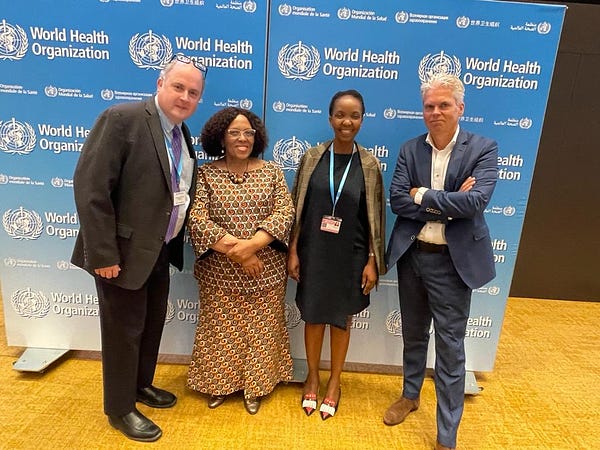
Pamela Hamamoto
United States
Chief Delegate
Mr. Xavier Becerra: Secretary, Department of Health
Deputy Chief Delegate
Ms. Bathsheba Nell Crocker: Ambassador, Permanent Representative, Geneva
Delegate
Ms. Loyce Pace: Assistant Secretary of Global Affairs, Office of Global Affairs, Department of Health and Human Services
Alternates
Mr. Mark Abdoo: Associate Commissioner, Office of Global Policy and Strategy, Food and Drug Administration, Department of Health and Human Services Mark.Abdoo@fda.hhs.gov
Dr. Mara Burr: Director, Multilateral Relations, Office of Global Affairs, Department of Health and Human Services Mara.Burr@hhs.gov
Ms. T. Carson: Health Attaché, Permanent Mission, Geneva
Ms. B. De Rosa-Joynt: Senior Health Advisor, Office of Economic and Development Affairs, Bureau of International Organization Affairs, Department of State
Dr. A. Gawande: Assistant Administrator for Global Health, Bureau for Global Health, Agency for International Development
Dr. M. Lim: Deputy Health Attaché, Permanent Mission, Geneva
Mr. Colin McIff: Deputy Assistant Secretary, Office of Global Affairs, Department of Health and Human Services Colin.Mciff@hhs.gov
Ms. M. Sison: Assistant Secretary of State for International Organization Affairs, Bureau of International Organization Affairs, Department of State
Ms. K. Skarsten: Deputy Director, Office of Economic and Development Affairs, Bureau of International Organization Affairs, Department of State
Ms. M. Sumilas: Assistant to the Administrator, Bureau for Policy, Planning and Learning, Agency for International Development
Dr. Howard Zucker: Deputy Director, Global Health, Centers for Disease Control and Prevention, Department of Health and Human Services klj4@cdc.gov
Advisors
Mr. Adam Aasen: Senior Global Health Officer, Office of Global Affairs, Department of Health and Human Services Adam.Aasen@hhs.gov
Ms. Daniela Aguirre: Global Health Officer, Multilateral Relations, Office of Global Affairs, Department of Health and Human Services Daniela.Aguirre@hhs.gov
Ms. C. Blake: Senior Humanitarian Advisor, Agency for International Development, Permanent Mission, Geneva
Ms. A. Boccuzzi: Chief of Staff, Bureau for Global Health, Agency for the International Development
Ms. K. Brown: Deputy Negotiator for the Pandemic Accord, Office of the Coordinator for Global COVID-19 Response and Health Security, Department of State
Mr. Matthew Carvalho: Global Health Intern, Youth Member, Office of Global Affairs, Department of Health and Human Services Matthew.Carvalho@hhs.gov
Dr. M. Claros: Acting Team Lead, United Nations International Children's Emergency Fund, Bureau of Humanitarian Assistance, Agency for International Development
Ms. Rebecca Coggins: Global Health Officer, Office of Global Affairs, Department of Health and Human Services Rebecca.Coggins@hhs.gov
Mr. Steven Constantinou: Global Health Officer, Office of Global Affairs, Department of Health and Human Services Steven.Constantinou@hhs.gov
Mr. J. Cormier: Senior Advisor, Permanent Mission, Geneva
Ms. S.N. Duncan-Jones: Senior Development Advisor, Agency for International Development, Permanent Mission, Geneva
Ms. A. Galati: Senior Policy Advisor, Bureau for Policy, Planning and Learning, Agency for International Development
Mr. K. Ghashghai: Counsellor, Multilateral Economic and Political Affairs, Permanent Mission, Geneva
Ms. M.B. Goodman: Coordinator, Global COVID-19 Response and Health Security, Office of the Coordinator for Global COVID-19 Response and Health Security, Department of State
Ms. Pamela Hamamoto: Ambassador, Negotiator for the Pandemic Accord, Department of State
Mr. J. Hay: First Secretary, Permanent Mission, Geneva Ms M. Hayes International Relations Officer, Office of International Health and Biodefense, Bureau of Oceans and International Environmental Scientific Affairs, Department of State
Ms. S. Kim: Principal Deputy Assistant Secretary, Office of Global Affairs, Department of Health and Human Services
Ms. Gabrielle Lamourelle: Senior Advisor, Office of Global Affairs, Department of Health and Human Services Gabrielle.Lamourelle@hhs.gov
Ms. Maya Levine: Deputy Director, Multilateral Relations, Office of Global Affairs, Department of Health and Human Services Maya.Levine@hhs.gov
Ms. J. Martin: Senior Health Advisor, Permanent Mission, Geneva
Mr. E. Mayer: Deputy Assistant Secretary, Africa and the Middle East, Department of Treasury
Ms. R. Patel: Economic Officer, Political Economic Section, Permanent Mission, Geneva
Ms. M. Paton: Foreign Affairs Officer, Multilateral Population Policy, Office of Multilateral and External Coordination, Bureau of Population, Refugees, and Migration, Department of State
Ms. C. Peters: Legal Adviser, Permanent Mission, Geneva
Dr. M. Pillinger: Multilateral Health Policy Advisor, Bureau for Policy, Planning and Learning, Agency for International Development
Ms. Feride Rothschild: Special Assistant, Office of Global Affairs, Department of Health and Human Services Feride.Rothschild@hhs.gov
Mr. Kevin Segura: Special Assistant, Office of Global Affairs, Department of Health and Human Services Kevin.Segura@hhs.gov
Ms. Iris Shurdhi: Senior Global Health Officer, Office of Global Affairs, Department of Health and Human Services Iris.Shurdhi@hhs.gov
Dr. M. Smith: Senior Global Health Officer, Office of Global Affairs, Department of Health and Human Services
Mr. S. Smith: Representative, National Institutes of Health and National Institute of Allergy and Infectious Diseases, Permanent Mission, Geneva
Ms. Christina Taylor: Senior Global Health Officer, Office of Global Affairs, Department of Health Services Christina.Taylor@hhs.gov
Ms. K. Thomas: Global Health Officer, Multilateral Relations, Office of Global Affairs, Department of Health and Human Services
Dr. T. Trimble: Senior Advisor, National Cancer Institute, Nation Institutes of Health, Department of Health and Human Services
Ms. S. Chai: Senior Health Advisor, Office of International Development Policy, Department of Treasury
Mr. G. Vaughan: International Relations Officer, Office of International Health and Biodefense, Bureau of Oceans and International Environmental Scientific Affairs, Department of State
Dr. J. Vertefeuille: Global Immunization Division, Centers for Disease Control Prevention, Department of Health and Human Services
Ms. Kacey Wulff: Counsellor, Office of the Secretary, Department of Health and Human Services Kacey.Wulff@hhs.gov
Dr. M. Yilla: Acting Principal Deputy Coordinator, Multisector Relations, Office of Global AIDS Coordinator and Health Diplomacy, Department of State
Mr. N.J. Bernard: Assistant Special Agent in Charge, Department of Health and Human Services
Ms. S. Davis: Economic Analyst, Office of International Development Policy, Department of Treasury
Ms. M. Fleming: Special Assistant to the Deputy Director for Global Health, Global Immunization Division, Centers for Disease Control and Prevention, Department of Health and Human Services
Ms. M. O’Toole: Department of Health and Human Services
Ms C. Ramirez: Department of Health and Human Services
Mr. Brian Reich: Director of Speechwriting, Office of the Assistant Secretary for Public Affairs, Department of Health and Human Services Brian.Reich@hhs.gov
Mr. L. Russo: Department of Health and Human Services
Ms. O. Sage: Special Assistant to the Assistant Administrator, Bureau of Global Health, Agency for International Development
Ms. H. Salazar: Special Assistant for Scheduling and Advance, Office of the Secretary, Department of Health and Human Services
Mr. B. Scott: Advance Representative, Office of the Secretary, Department of Health and Human Services
Mr. F. Thomas: Department of Health and Human Services
Mr. V. Zubry: Department of Health and Human Services
QUESTION 6:
6. What determination has been made by your office (if any) as to whether such proposed amendments should be considered to be a treaty, an Executive agreement, a Congressional-Executive agreement or other category?
b. When there is any question whether an international agreement should be concluded as a treaty or as an international agreement other than a treaty, the matter is brought to the attention, in the first instance, of the Legal Adviser for Treaty Affairs.
If the Assistant Legal Adviser for Treaty Affairs considers the question to be a serious one that may warrant formal congressional consultation, s/he or an appropriate representative of the Office of the Legal Adviser (L) will consult with the Assistant Secretary for Legislative Affairs (H) (or designee) and other affected bureaus. Upon receiving their views on the subject, the Legal Adviser will, if the matter has not been resolved, transmit a memorandum thereon to the Secretary (or designee) for a decision.
Every practicable effort will be made to identify such questions at the earliest possible date so that consultations may be completed in sufficient time to avoid last-minute consideration.
c. Consultations on such questions will be held with congressional leaders and committees as may be appropriate. Arrangements for such consultations shall be made by the Assistant Secretary for Legislative Affairs and shall be held with the assistance of the Office of the Legal Adviser (L) and such other offices as may be determined.
Nothing in this section shall be taken as derogating from the requirement of appropriate consultations with the Congress in accordance with 11 FAM 725.1, subparagraph (5), in connection with the initiation of, and developments during negotiations for international agreements, particularly where the agreements are of special interest to the Congress.
Whether any undertaking, document, or set of documents constitutes or would constitute an international agreement within the meaning of the Act or of 1 U.S.C. 112a shall be determined by the Legal Adviser of the Department of State, a Deputy Legal Adviser, or in most cases the Assistant Legal Adviser for Treaty Affairs.
https://www.ecfr.gov/current/title-22/chapter-I/subchapter-S/part-181/section-181.3#p-181.3(a)
It would seem clear and obvious that the amendments to the International Health Regulations are an extension and/or a modification of an existing international agreement.
(d) Extensions and modifications of agreements. If an undertaking constitutes an international agreement within the meaning of the Act and of 1 U.S.C. 112a, then a subsequent extension or modification of such an agreement would itself constitute an international agreement within the meaning of the Act and of 1 U.S.C. 112a.
https://www.ecfr.gov/current/title-22/chapter-I/subchapter-S/part-181#p-181.2(d)
To repeat:
6. What determination has been made by your office (if any) as to whether such proposed amendments should be considered to be a treaty, an Executive agreement, a Congressional-Executive agreement or other category?
QUESTION 7:
7. Is a signature by the President required to authorize the amendments that were adopted on May 27, 2022, or will they become legally binding due to inaction?
It is believed that NO signature is needed. Silence = Consent
QUESTION 8:
8. Were members of the appropriate Congressional committees informed of the negotiations?
11 FAM 725.1 Conduct of Negotiations
(5) With the advice and assistance of the Assistant Secretary for Legislative Affairs, the appropriate congressional leaders and committees are advised of the intention to negotiate significant new international agreements, consulted concerning such agreements, and kept informed of developments affecting them, including especially whether any legislation is considered necessary or desirable for the implementation of the new treaty or agreement.
The answer is believed to be that there was no time for any such communications to occur.
QUESTION 9:
Is the advice and consent of the Senate required for these amendments to come into force for the United States or will they become legally binding due to the simple inaction of our elected officials?
The answer is believed to be that no action is needed. Silence=Consent
QUESTION 10:
10. Is there anything that the Senate or Congress can do to prevent these amendments from becoming legally-binding?
The answer is believed to be that NO action is possible. There is a deep, deep flaw in the system that was built into the original Join Resolution. http://ExitTheWHO.com
QUESTION 11:
Because the amendments adopted on May 27, 2022 change the time periods during which a nation may reject amendments (from 18 to 10 months) as well as the time period at which the amendments would come into force (from 24 to 12 months), there is confusion as to exactly which time periods currently apply.
11. Could you please clarify this issue? Could you please specify the deadline by which the President or the Secretary of State must act in order to reject the amendments that were adopted on May 27, 2022?
Please verify that the President, and the Secretary of State have the authority to REJECT these amendments under article 61 of the current International Health Regulations.
All that is needed is for the President to send a simple letter to the WHO to notify them of our REJECTION of the amendments that were adopted on May 27, 2022.
Under the current International Health Regulations, the 194 member nations have 18 months from the time of notification by the Director General of the WHO. It is estimated that the deadline is sometime near the end of November 2023.
QUESTION 12:
12. There was obviously no opportunity for the public to comment on this potentially legally binding international agreement as specified in the Foreign Affairs Manual.
11 FAM 725.1 Conduct of Negotiations
(6) The interest of the public be taken into account and, where in the opinion of the Secretary of State or his or her designee the circumstances permit, the public be given an opportunity to comment;
SOURCES:
The amendments that were adopted on May 27, 2022 by the 75th World Health Assembly were initially submitted on May 24, 2022:
https://apps.who.int/gb/ebwha/pdf_files/WHA75/A75_ACONF7-en.pdf
The amendments that were adopted on May 27, 2022 by the 75th World Health Assembly are below:
https://apps.who.int/gb/ebwha/pdf_files/WHA75/A75_ACONF7Rev1-en.pdf
https://www.state.gov/bureaus-offices/secretary-of-state/office-of-the-legal-adviser/
https://www.state.gov/biographies/richard-c-visek/
https://www.state.gov/bureaus-offices/treaty-affairs/
https://www.state.gov/treaty-procedures/
https://www.ecfr.gov/current/title-22/chapter-I/subchapter-S/part-181
https://2009-2017.state.gov/s/l/treaty/c175/index.htm
https://fam.state.gov/FAM/11FAM/11FAM0710.html
https://fam.state.gov/FAM/11FAM/11FAM0720.html
https://fam.state.gov/FAM/11FAM/11FAM0730.html
https://fam.state.gov/FAM/11FAM/11FAM0740.html
The proposed amendments that are currently being negotiated by the Working Group on amendments to the International Health Regulations are available here:
https://apps.who.int/gb/wgihr/index.html
SOURCE:
https://archives.federalregister.gov/issue_slice/1981/7/13/35916-35921.pdf#page=2
Circular 175 Procedure
The Circular 175 procedure refers to regulations developed by the State Department to ensure the proper exercise of the treaty-making power. Its principal objective is to make sure that the making of treaties and other international agreements for the United States is carried out within constitutional and other appropriate limits, and with appropriate involvement by the State Department. The original Circular 175 was a 1955 Department Circular prescribing a process for prior coordination and approval of treaties and international agreements. This title has been retained; the applicable procedures are now contained at 11 FAM 720 .
There are two kinds of Circular 175 requests. One calls for the approval of full powers to sign treaties that the President will send to the Senate for advice and consent to ratification. Since under international law full powers may be issued only by heads of State and Foreign Ministers, approval of full powers is not a delegable function.
The more typical Circular 175 request is an action memorandum from a bureau or office in the State Department to a Department official at the Assistant Secretary level or above, requesting authority to negotiate, conclude, amend, extend, or terminate an international agreement. The memorandum may request -
authority to negotiate and/or conclude;
authority to extend and/or amend; or
authority to terminate/withdraw from
an international agreement. The memorandum should set forth the issue for decision; the principal features of the proposed agreement; any special problems that may be encountered along with any contemplated solutions to those problems; and policy benefits to the United States of the requested action. It also should address whether there will be congressional consultations and whether an environmental impact assessment is needed. Where a proposed agreement involves commitments of resources beyond those authorized by approved budgets, the matter must be addressed.
The action memorandum should be accompanied by any texts to be negotiated or concluded, and generally a memorandum of law discussing thoroughly the legal bases for the agreement. Background information or additional detail may be included as attachments. The memorandum is cleared by all interested federal agencies and by relevant offices within the State Department. In certain circumstances, the Office of Treaty Affairs may conclude that a blanket authorization is appropriate where a series of agreements of the same general type are to be negotiated according to a more or less standard formula.
The thoroughness and care devoted to the Circular 175 procedure is designed to ensure -
that approval for the negotiation and conclusion of all international agreements is obtained at appropriate policy levels;
that agencies or offices having responsibility for any aspect of the subject matter involved have approved the negotiation and, prior to conclusion, the text of the agreement;
that any issues that might arise between the Congress and the executive, and any questions regarding the use of the treaty power, are resolved; and
that adequate legal authority for each treaty or executive agreement exists.
Further, the Circular 175 procedure assists the State Department in transmitting to the Congress pursuant to the Case-Zablocki Act ( 1 U.S.C. 112b) [hot link] the text of any international agreement other than a treaty to which the United States is a party as soon as practicable after such agreement has entered into force with respect to the United States but in no event later than sixty days thereafter.
The Circular 175 procedure does not apply to documents that are not binding under international law. Thus, statements of intent or documents of a political nature not intended to be legally binding are not covered by the Circular 175 procedure. The determination whether a document is or is not an international agreement must be made by the Office of the Legal Adviser at the State Department.
I have been asking these questions for months…
by James Roguski
The old system is crumbling, and we must build its replacement quickly.
If you are fed up with the government, hospital, medical, pharmaceutical, media, industrial complex and would like to help build a holistic alternative to the WHO, then feel free to contact me directly anytime.
JamesRoguski.substack.com/about
JamesRoguski.substack.com/archive
310-619-3055
All content is free to all readers.
All support is deeply appreciated.












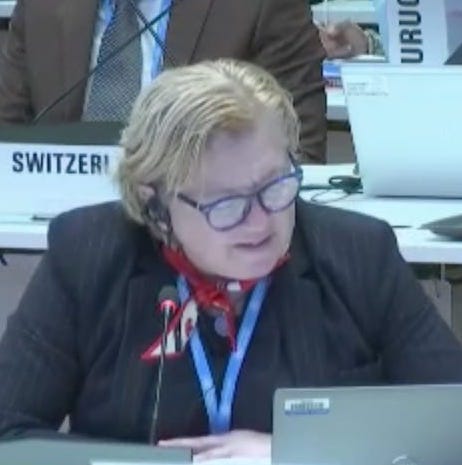


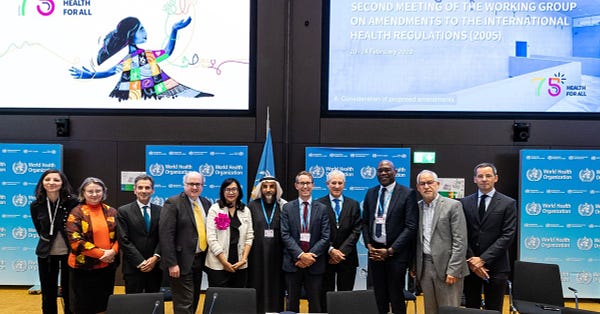
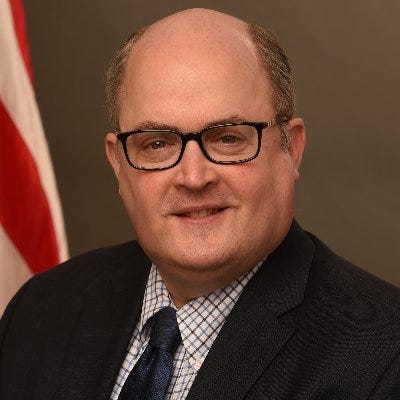
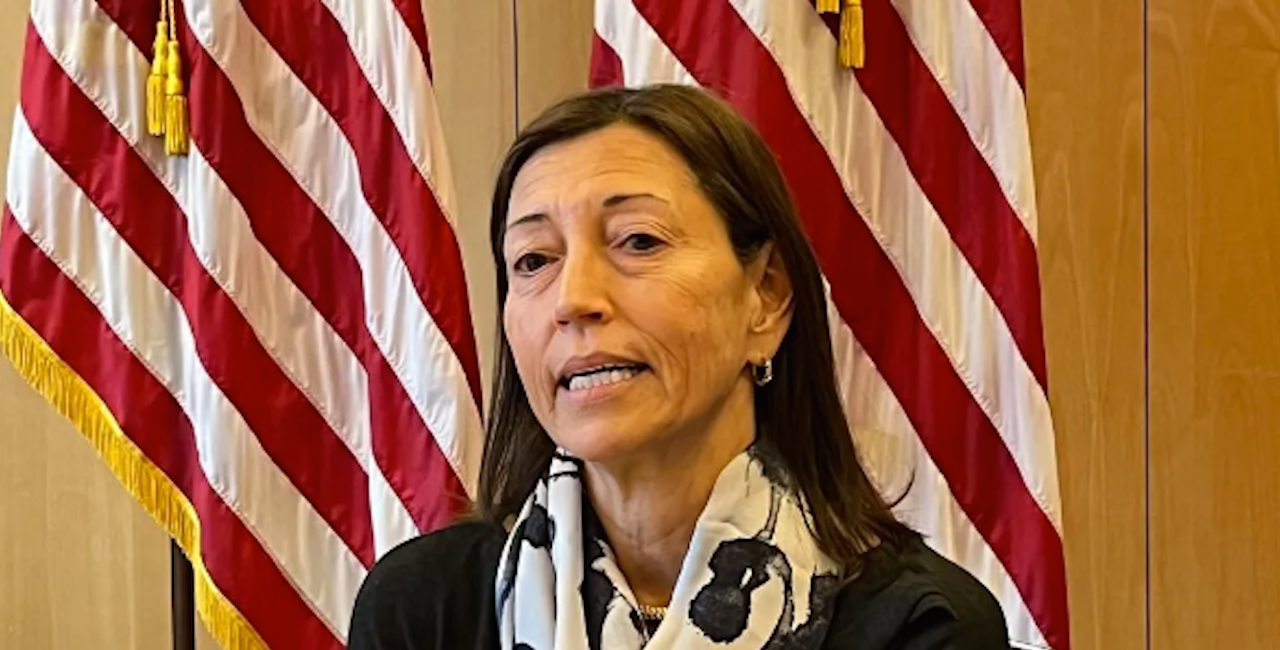









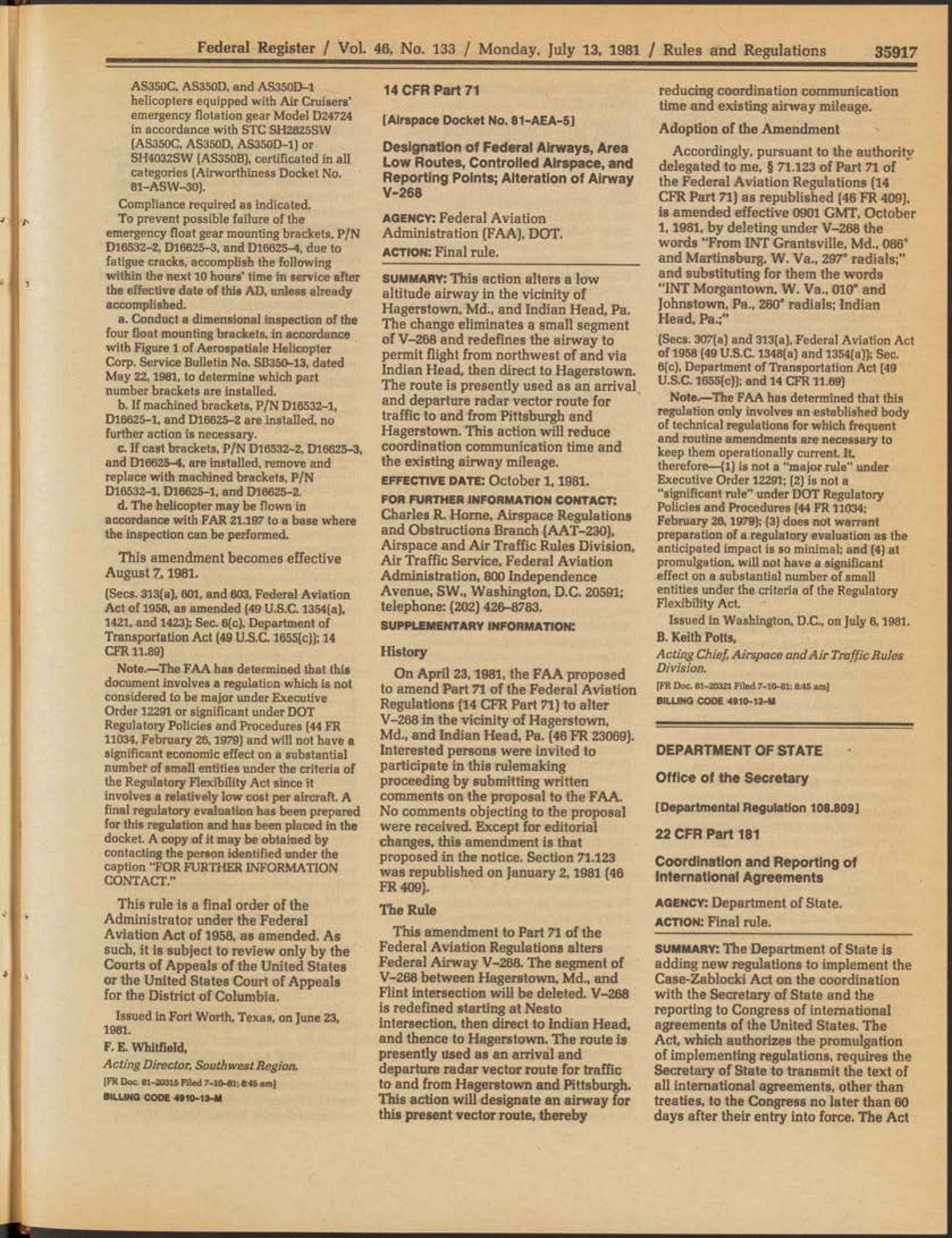
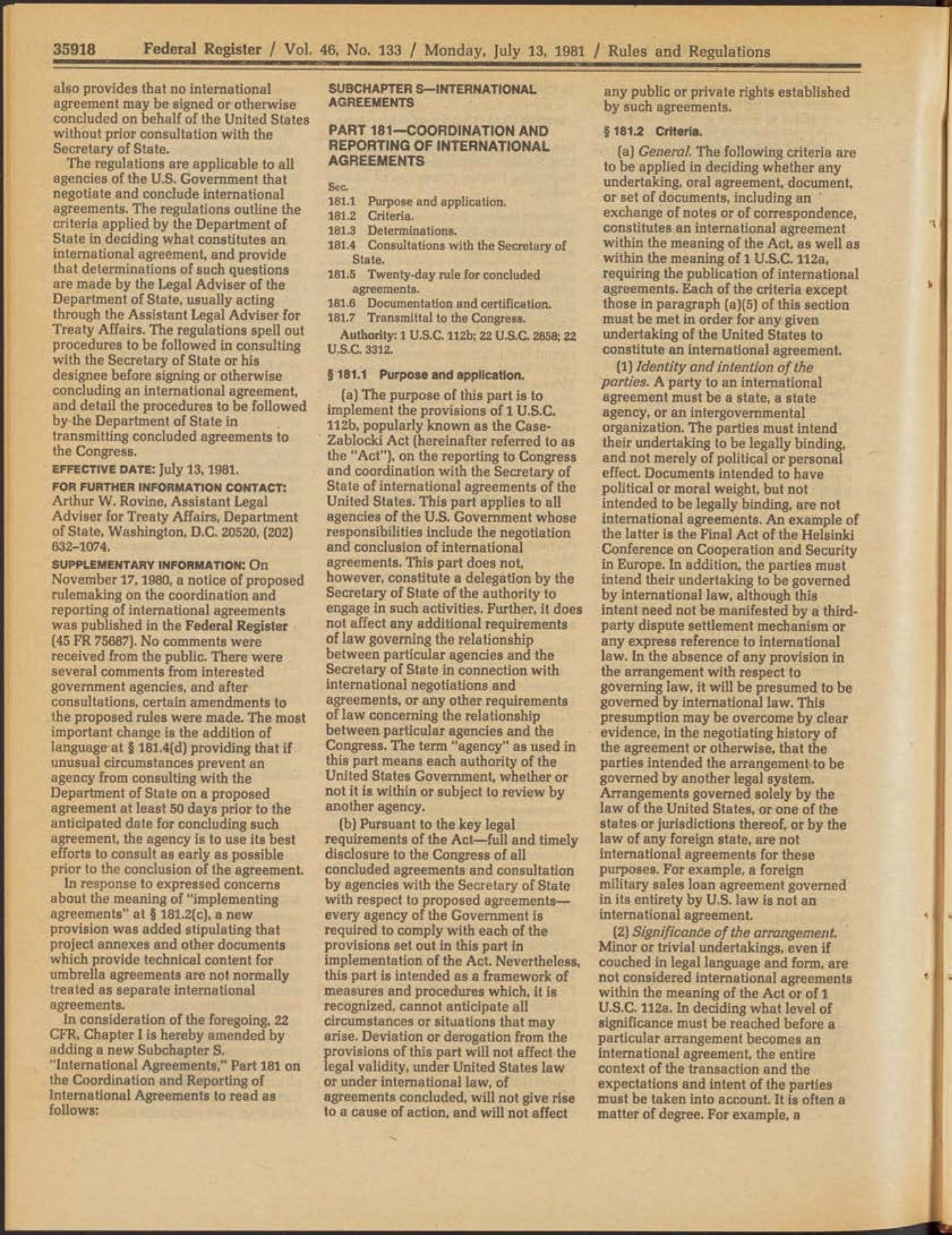

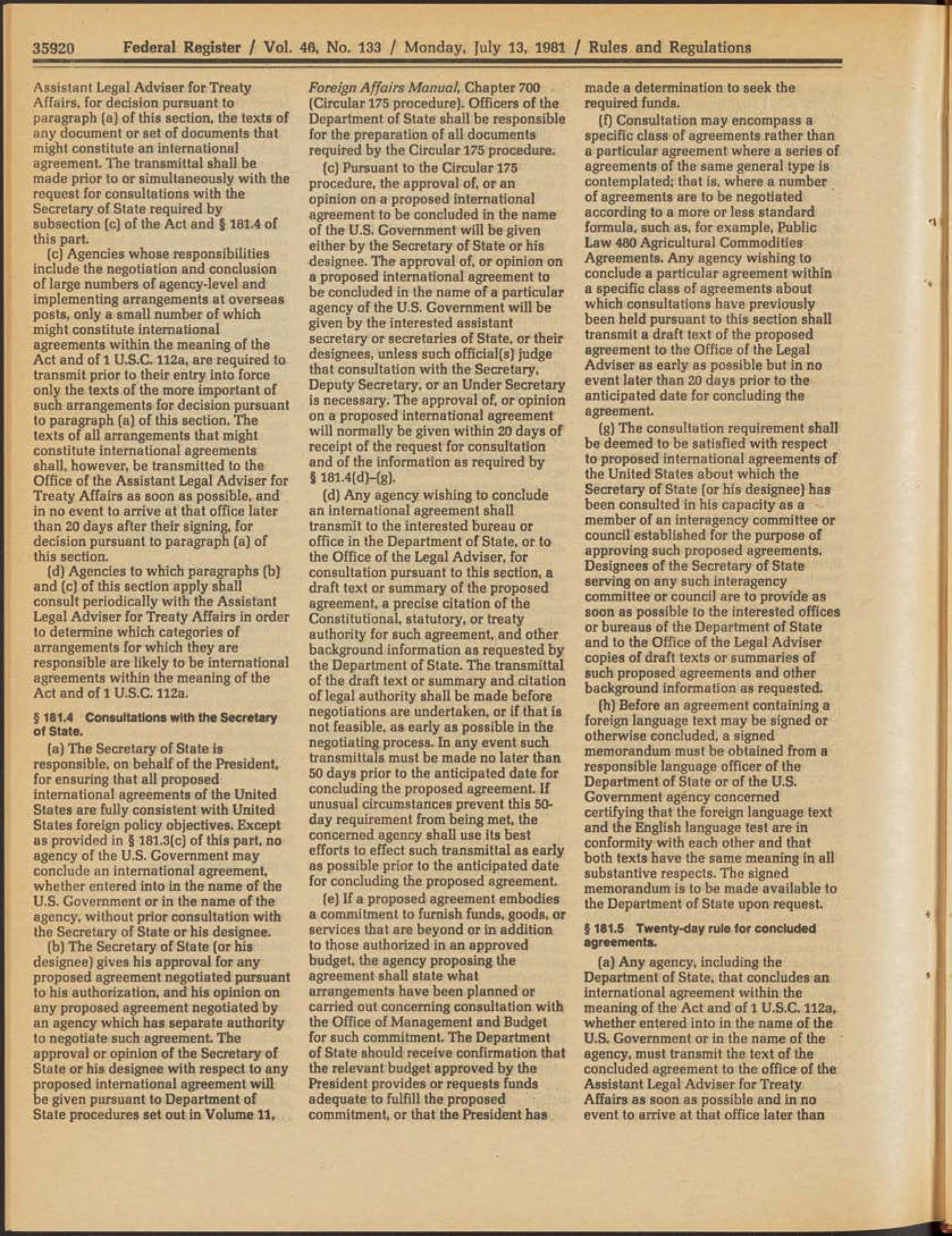
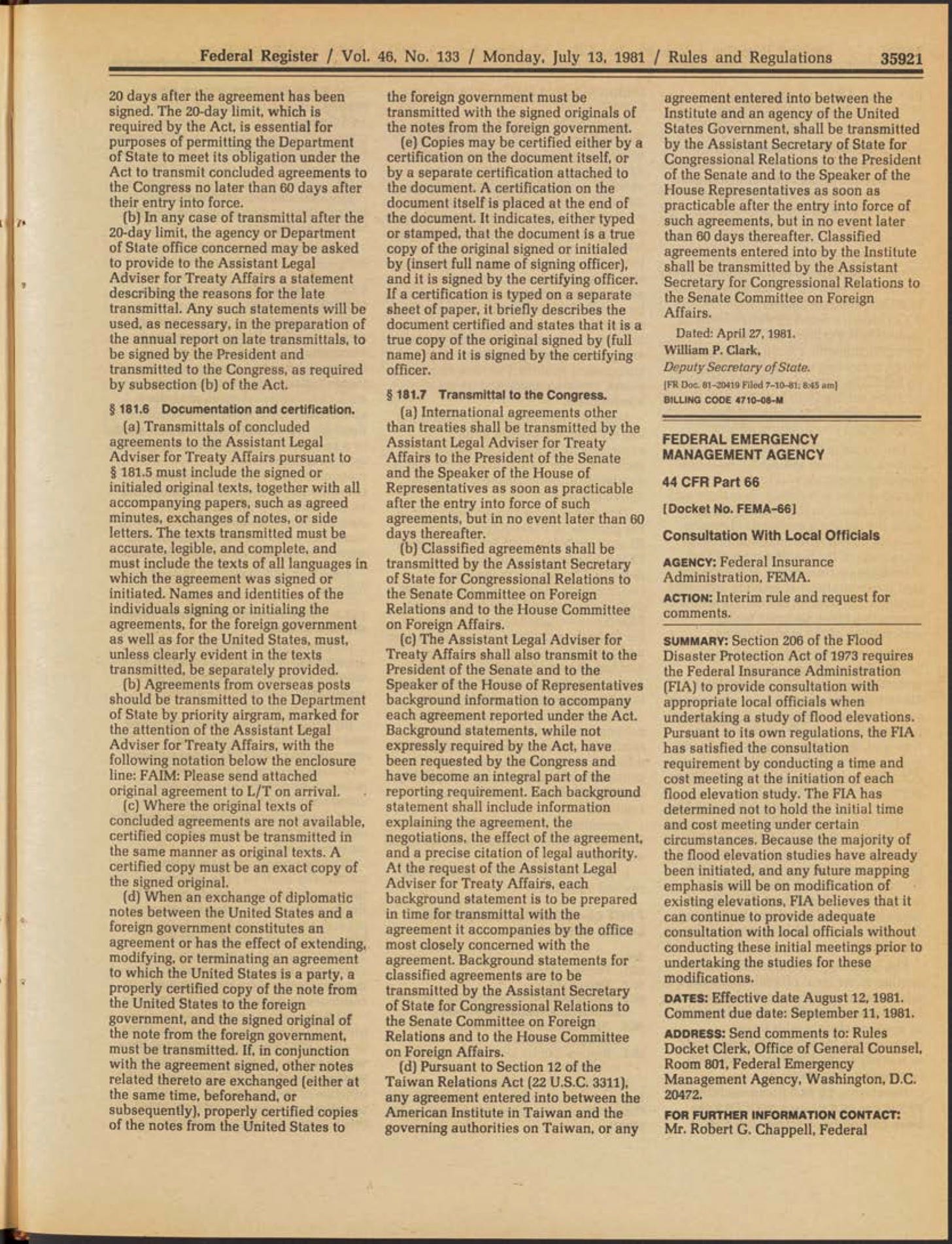




END THE WHO BEFORE THEY END YOU, US, WE, ALL, FOLLOW James Roguski"s INSTRUCTIONS
What can knowing the truth accomplish, except for being prepared for what's coming?